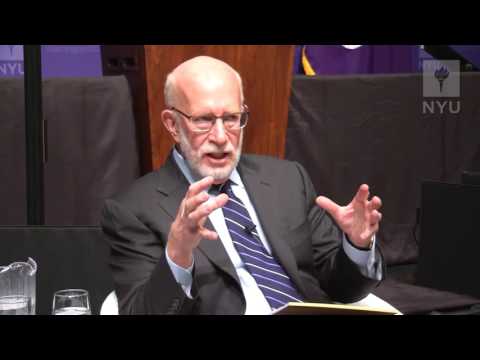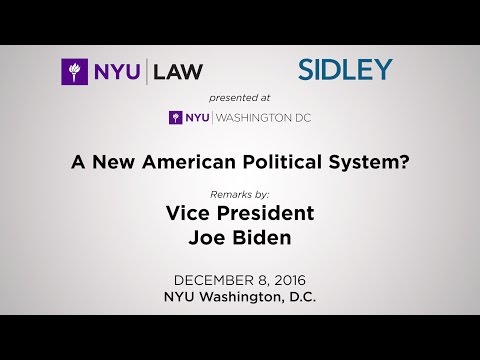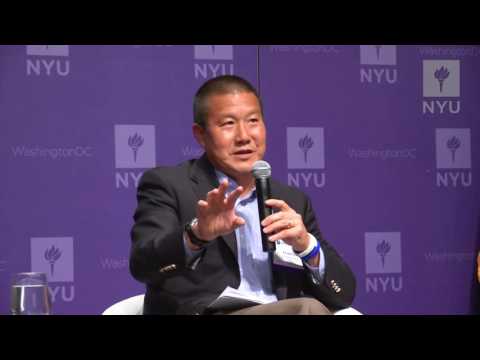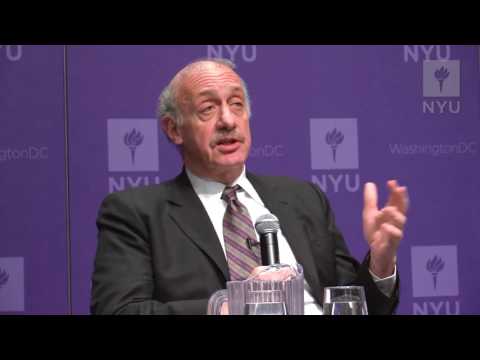 1:02:33 A New American Political System: The Role of Parties (and Third Parties) NYU School of Law, in cooperation with NYU Washington, DC and the Law School's Legislative and Regulatory Process Clinic debuts the inaugural Sidley Austin Forum. This annual forum, supported by a...
1:02:33 A New American Political System: The Role of Parties (and Third Parties) NYU School of Law, in cooperation with NYU Washington, DC and the Law School's Legislative and Regulatory Process Clinic debuts the inaugural Sidley Austin Forum. This annual forum, supported by a... 57:15 Vice President Joe Biden: A New American Political System? Vice President Joe Biden delivers remarks at the inaugural Sidley Austin Forum hosted by NYU School of Law at NYU Washington, DC.
57:15 Vice President Joe Biden: A New American Political System? Vice President Joe Biden delivers remarks at the inaugural Sidley Austin Forum hosted by NYU School of Law at NYU Washington, DC.In the wake of the 2016 elections, the program will address the ev...
 50:01 A New American Political System? The Changing Role of the News and Social Media NYU School of Law, in cooperation with NYU Washington, DC and the Law School's Legislative and Regulatory Process Clinic, debuted the inaugural Sidley Austin Forum, on December 8, 2016. This annua...
50:01 A New American Political System? The Changing Role of the News and Social Media NYU School of Law, in cooperation with NYU Washington, DC and the Law School's Legislative and Regulatory Process Clinic, debuted the inaugural Sidley Austin Forum, on December 8, 2016. This annua... 46:56 A New American Political System? Closing Remarks NYU Sidley NYU School of Law, in cooperation with NYU Washington, DC and the Law School's Legislative and Regulatory Process Clinic, debuted the inaugural Sidley Austin Forum. This annual forum, supported by...
46:56 A New American Political System? Closing Remarks NYU Sidley NYU School of Law, in cooperation with NYU Washington, DC and the Law School's Legislative and Regulatory Process Clinic, debuted the inaugural Sidley Austin Forum. This annual forum, supported by... 52:50 A New American Political System? Effect of Developments in Technology on Political Information NYU School of Law, in cooperation with NYU Washington, DC and the Law School's Legislative and Regulatory Process Clinic, debuted the inaugural Sidley Austin Forum. This annual forum, supported by...
52:50 A New American Political System? Effect of Developments in Technology on Political Information NYU School of Law, in cooperation with NYU Washington, DC and the Law School's Legislative and Regulatory Process Clinic, debuted the inaugural Sidley Austin Forum. This annual forum, supported by... 43:09 A New American Political System? The State and Direction of Campaign Finance NYU School of Law, in cooperation with NYU Washington, DC and the Law School's Legislative and Regulatory Process Clinic, debuted the inaugural Sidley Austin Forum, on December 8, 2016. This annua...
43:09 A New American Political System? The State and Direction of Campaign Finance NYU School of Law, in cooperation with NYU Washington, DC and the Law School's Legislative and Regulatory Process Clinic, debuted the inaugural Sidley Austin Forum, on December 8, 2016. This annua...